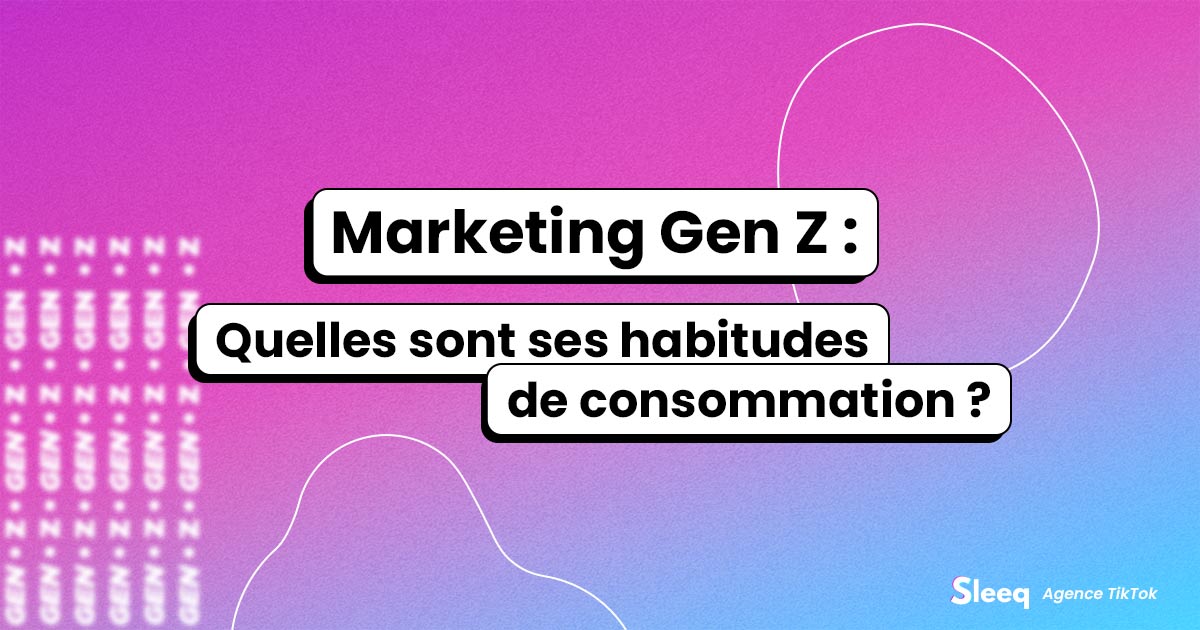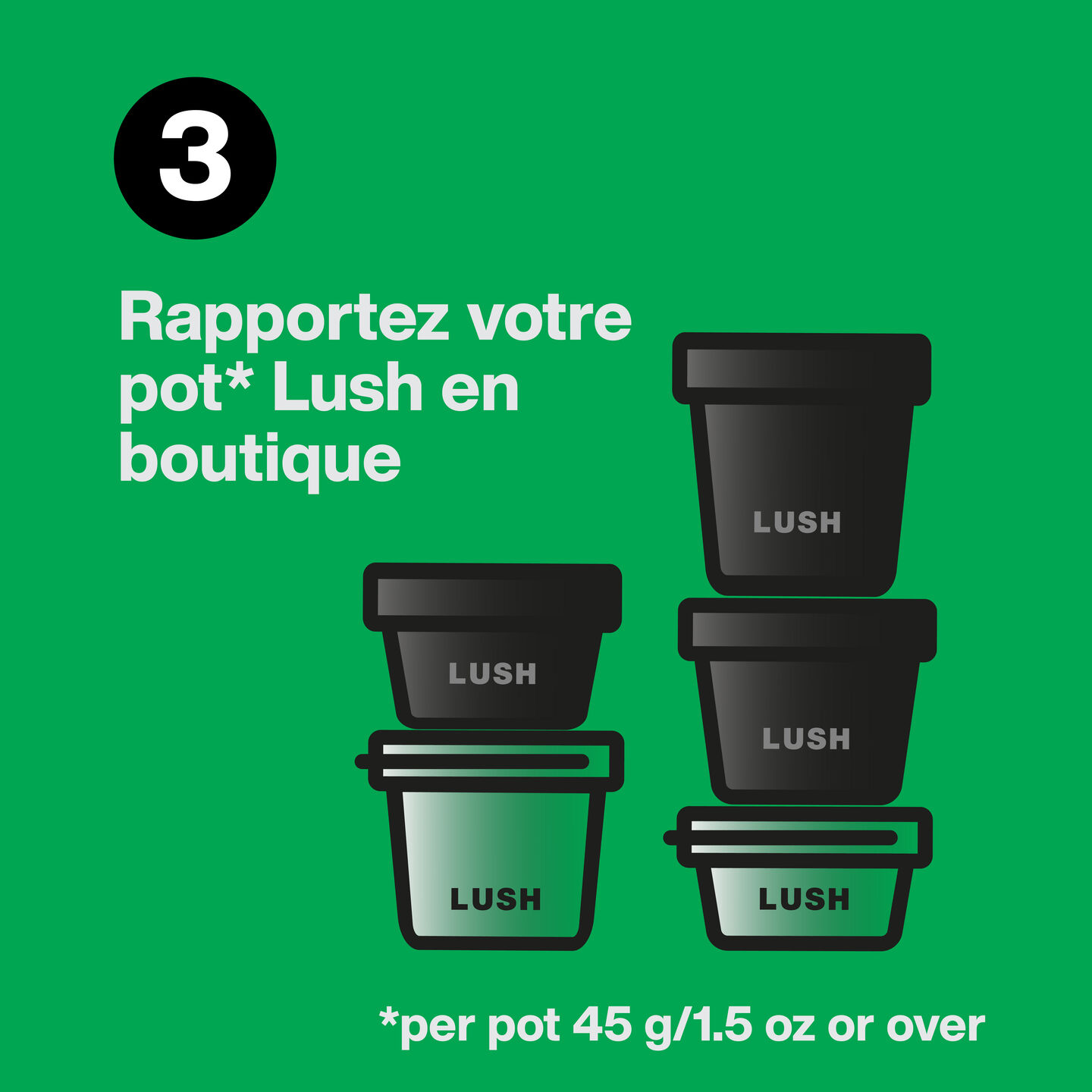Marketing Gen Z : Le comportement d'achat des nouveaux consommateurs
Découvrez les habitudes de consommation et le comportement de la Generation Z pour optimiser votre marketing digital et engager efficacement les consommateurs de demain.
August 22, 2025

La génération Z est désormais une force majeure sur le marché du travail.
En tant que génération intrinsèquement liée à l'ère numérique dès la naissance, elle a déjà laissé son empreinte en influençant les habitudes de consommation et en redéfinissant les interactions des marques sur les réseaux sociaux. De plus, son pouvoir d'achat ne fait que croître, influençant de plus en plus l'économie mondiale.
Face à ce phénomène, les entreprises se retrouvent dans l'obligation de repenser leur stratégie pour s'adapter à ses préférences distinctes si elles veulent gagner et conserver la fidélité de ces consommateurs d'un nouveau genre.
Ce qui est particulièrement remarquable, c'est le profond changement de valeurs que nous observons au sein de ce groupe démographique. Cette jeune génération place l'authenticité et la transparence au cœur de ses priorités. Elle est moins intéressée par la possession de biens matériels que par l'expérience d'achat elle-même et aspire à établir une relation authentique avec les marques dont les valeurs s'alignent avec les siennes.
Dans cet article, notre objectif est de vous fournir un aperçu approfondi de qui est véritablement la Génération Z et comment elle façonne les tendances de consommation actuelles. Nous vous dévoilerons également les meilleures stratégies marketing à adopter pour engager efficacement ce groupe de consommateurs, certes plus exigeants, mais aussi plus impliqués et engagés que jamais.
Qui est la génération Z ?

Née entre 1997 et 2009, la Gen Z, est en passe de constituer, d'ici 2030, un tiers de la population active française. Cette génération se distingue en particulier par le fait d'être la première à avoir vu le jour dans l'ère numérique, n'ayant jamais connu un monde sans Internet.
Le média américain The Economist la décrit comme étant plus éduquée, présentant une diversité ethnique plus grande et faisant preuve d'une empathie plus marquée. Une étude réalisée par l’université de Stanford considère également la Gen Z comme étant plus encline à la collaboration, se préoccupant sincèrement des autres, et adoptant une approche plus pragmatique pour résoudre les problèmes hérités de générations précédentes, comme le changement climatique.
Touchée de plein fouet par la pandémie, qui a engendré un niveau d'anxiété significatif, la Gen Z se distingue également par son idéalisme prononcé. Elle incarne une nouvelle ère de consommateurs progressistes et inclusifs. En général, les membres de la Gen Z sont convaincus que chaque individu a le pouvoir et la responsabilité d'agir pour protéger l'environnement et pour bâtir une société plus juste.
Plus que toute autre génération précédente, la Génération Z exige des institutions et surtout des marques, un niveau accru de responsabilité, de transparence et de durabilité.
Comprendre le comportement de consommation de la génération Z
Cette génération prometteuse, qui verra ses revenus être multipliés par plus de neuf au cours de la prochaine décennie, passera de 25 milliards d'euros en 2019 à un impressionnant 213 milliards d'euros en 2030 à l'échelle mondiale.
Il est donc d'une importance cruciale, de comprendre l'approche qu'à cette jeune génération pour interagir avec les marques et les critères qu'elle utilise pour sélectionner un produit ou un service diffèrent sensiblement de ceux des générations précédentes.
Premièrement, et même avant de considérer le prix, elle valorise la qualité et l'authenticité d'une marque. Les recommandations provenant de son entourage, d'autres consommateurs, et surtout des influenceurs, jouent un rôle crucial dans ses décisions d'achat. Par conséquent, le marketing traditionnel ne suffit plus pour atteindre et convertir efficacement les consommateurs de la Gen Z.
- 63% des membres de la Gen Z estiment que la qualité est le facteur le plus important lorsqu'il s'agit de choisir une marque.
- 45% déclarent qu'ils sont plus susceptibles de choisir une entreprise qui a été recommandée par un ami.
- 73% des consommateurs de la Gen Z favorisent les marques qui reflètent leurs propres valeurs.
Habituée à découvrir les marques et à effectuer des achats en ligne, la Gen Z a des attentes élevées en termes d'expérience d'achat. Elle souhaite pouvoir acheter un produit qui lui a été recommandé en quelques clics, et ce, indépendamment du canal sur lequel elle se trouve à un moment donné.
L'essor fulgurant des réseaux sociaux et du marketing d'influence a modifié de manière significative le comportement d'achat, en influençant tant la fréquence que le montant des achats.de la Gen Z. Elle ne fait plus ses achats uniquement une fois par semaine ou une fois par mois, mais beaucoup plus fréquemment, et pour des montants généralement plus modestes.
Quelles stratégies pour commercialiser à la Gen Z ?
Pour attirer l'attention de cette génération et instaurer une fidélité à long terme, il est essentiel de comprendre les motivations et les modalités de consommation de la Gen Z. C'est en ajustant votre offre à ses habitudes d'achat, en proposant des produits/services qui correspondent à ses valeurs, et en offrant une expérience personnalisée que vous réussirez à engager efficacement et de manière durable ce groupe de consommateurs.
{{cta}}
Du digital au shopping omnicanal
Les membres de la génération Z valorisent grandement la rapidité : ils aspirent à une gratification instantanée, à une livraison le jour même, à des caisses en libre-service et à un accès immédiat aux informations, produits et services qui leur sont proposés. Ils s'attendent à ce que les interactions soient rapides et efficaces.
Ainsi, 60 % des consommateurs de la génération Z ne se risqueront pas à utiliser des applications ou des sites Web qui sont lents à charger ou compliqués à naviguer.
Ils ont donc tendance à privilégier les marques qui leur proposent une expérience d'achat omnicanale. Par exemple, un membre de la Gen Z pourrait découvrir un produit grâce à un influenceur, et l'acheter ultérieurement après avoir été exposé à une annonce de retargeting sur les réseaux sociaux.
Et bien que cette génération soit passionnée par les nouvelles technologies, elle apprécie également l'expérience d'achat en magasin. Cependant, elle attend des marques qu'elles établissent des passerelles entre le shopping en ligne et en magasin (comme par exemple via des QR codes en magasin pour accéder aux fiches produits ou via le système de "click and collect").
Conseil : Veillez à optimiser votre expérience d'achat sur tous les canaux et créez autant de connexions que possible entre votre boutique en ligne et vos points de vente physiques. Assurez-vous également que votre image de marque reste cohérente sur l'ensemble de ces plateformes.

L’authenticité et la transparence d’abord
Cette jeune génération de consommateurs sont généralement plus sceptiques à l'égard des messages commerciaux des marques. Grâce à leur aisance avec le numérique, ils ont la capacité de vérifier facilement l'origine des produits ou la consistance du discours de la marque sur les réseaux sociaux, et ne toléreront aucune incohérence.
C'est pour cette raison que la Gen Z porte une préférence vers les marques qui sont transparentes et authentiques, des marques qui incarnent leurs valeurs en matière d'environnement, d'inclusion, et de justice sociale.
Conseil : Assurez-vous que le contenu que vous publiez en ligne représente et coïncide avec vos valeurs et votre engagement. N'hésitez pas à inviter les consommateurs dans les coulisses de votre entreprise, et à leur offrir un aperçu sincère sur vos méthodes de production, et autres aspects de votre activité.
Privilégier les marques éthiques et durables
Face à l'urgence climatique, les consommateurs de la Gen Z ressentent de plus en plus le besoin de modifier leurs habitudes de consommation pour favoriser des pratiques plus respectueuses de l'environnement.
Ils sont donc plus enclins à dépenser leur argent pour des produits durables et de meilleure qualité. Par exemple, 80 % des membres de la GenZ privilégient l'achat de produits d'occasion, et un tiers d'entre eux ont déjà revendu au moins un article au cours de l'année passée.
Conseil : Réfléchissez à la manière dont vous pouvez incorporer la durabilité dans tout le cycle de production de vos produits. Mettez l'accent sur leur caractère recyclable, envisagez d'investir dans des emballages sans plastique et facilitez le retour des contenants (à la manière de Lush, par exemple).

Capitaliser sur la recommandation des influenceurs et autres consommateurs
Les comportements d'achat de la Gen Z ne sont plus dictés par le discours des marques, mais plutôt par celui des autres consommateurs. En effet, 92 % d'entre eux considèrent que les recommandations d'influenceurs sur les réseaux sociaux sont le facteur le plus déterminant dans leurs décisions d'achat, surpassant de loin la publicité, les conseils des vendeurs en magasin, ou même les célébrités.
La Gen Z apprécie également d'acheter des produits recommandés par d'autres consommateurs. Ils sont donc particulièrement intéressés par les tests de produits partagés sur les réseaux sociaux et recherchent presque systématiquement les avis de clients précédents avant de passer commande.
Conseil : Stimulez la création de contenu généré par les utilisateurs (UGC) parmi vos clients pour favoriser le bouche-à-oreille numérique. Optez aussi pour des partenariats avec des influenceurs qui partagent vos valeurs, ce qui apportera une crédibilité et une authenticité supplémentaires à votre marque.
Impliquer la Gen Z dans le processus de création
La Gen Z ne se contente pas d'être une génération de consommateurs passifs. Elle cherche à établir une véritable connexion avec les marques dont elle fait l'achat, et souhaite notamment participer à la création de leur contenu. C'est pour cette raison qu'elle privilégie des plateformes interactives comme TikTok et Twitch, où elle peut dialoguer directement avec les entreprises, participer à des défis, et plus encore.
Conseil : Vous pouvez même aller plus loin en invitant la Gen Z à co-créer vos produits ou services. Des entreprises comme Nideco impliquent leur communauté à chaque étape, en leur permettant d'imaginer le produit de beauté qu'elle aimerait pouvoir acheter auprès de leur marque, puis en faisant voter pour l'idée la plus pertinente.
Adaptez votre marketing à la Gen Z
L'adaptation des stratégies marketing en réponse à la Génération Z est aujourd'hui un impératif essentiel pour assurer la pérennité et le développement de toute entreprise.
Cette nouvelle génération de consommateurs, en pleine ascension sur le marché du travail, dispose d'un pouvoir d'achat en constante augmentation. De plus, elle a d'ores et déjà commencé à exercer une influence majeure sur les habitudes de consommation et le fonctionnement du commerce mondial.
Le marketing à destination de la Génération Z exige une démarche davantage collaborative, authentique et axée sur des réelles valeurs. Seules les marques qui sauront s'adapter à ces nouvelles demandes réussiront à gagner la loyauté de cette génération et à s'épanouir dans l'économie de demain.
Si vous êtes en quête d'une agence capable de vous accompagner dans l'élaboration de campagnes d'envergure visant à toucher cette jeune génération, contactez-nous.








.avif)




